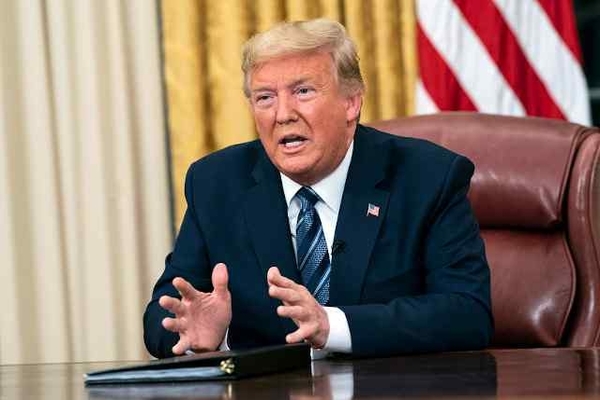(trendingpoliticsnews) – The Republican National Committee (RNC) has just unveiled the eligibility criteria for the first presidential debate, slated for August 23 in Milwaukee. The requirements, some of which have stirred controversy among potential candidates, include an unprecedented pledge to support the eventual GOP nominee.
Candidates seeking to participate in the upcoming debate are required to poll at 1% in at least three national polls or 1% in two national polls and one early state poll. Additionally, they must secure 40,000 unique donors. However, the requirement that has been a topic of discussion is the obligation for each candidate to sign a pledge to support the eventual Republican nominee, regardless of who it may be.
BREAKING: The RNC has released requirements for the first presidential debate to be held in Milwaukee on August 23.
— Greg Price (@greg_price11) June 2, 2023
– Must poll at 1% in three national polls or 1% in two national polls and one early state poll
– 40,000 unique donors
– Must sign a pledge to support the eventual… pic.twitter.com/ZkGsdncdzw
This new rule is seen by many as an attempt by the RNC to avoid intra-party division and ensure a united front heading into the general election. The 2020 election cycle was characterized by fierce infighting among Republican candidates, which some believe may have contributed to the party’s loss.
While some potential candidates have welcomed these new stipulations, others have expressed concerns about the pledge requirement. Critics argue that this could stifle legitimate debate and dissent within the party, effectively forcing candidates to endorse policy positions they might fundamentally disagree with.
The RNC’s decision to incorporate this pledge into the debate eligibility criteria indicates a strategic move to strengthen party unity and boost their chances in the upcoming presidential race. However, the potential implications for intra-party democracy and individual candidate autonomy remain to be seen.
Trump has previously expressed dissatisfaction with the debate process. Following a Trump-inspired threat to boycott 2024 debates sponsored by the Commission on Presidential Debates, the RNC began priming the electorate for a race where the GOP nominee might not debate at all. This move is seen as a reflection of Trump’s influence on the party and his impact on the 2024 election.
The RNC’s actions also reflect a sentiment popular within the party, as Republicans have often expressed frustration that debates and their media moderators are biased against them. This issue, according to some strategists, has been “boiling for cycles now.”
The expectation is that the debates will occur in some form in 2024, whether it’s through the commission, another organization, or direct negotiations between candidates.
There is currently no guarantee that a compromise will be reached, or that the debates will proceed in 2024 with the commission still in charge of the process and the RNC threatening to withdraw. Trump may benefit from increased flexibility to debate or not. Furthermore, if commission-sponsored debates go forward and are perceived as unfavorable to the GOP nominee, the party has already signaled to the public that it may deem the process unfair.
The stage is set for an interesting first debate on August 23.
trendingpoliticsnews.com/just-in-rnc-debate-requirements-include-a-pledge-to-support-the-nominee-mace/

Leave a Reply